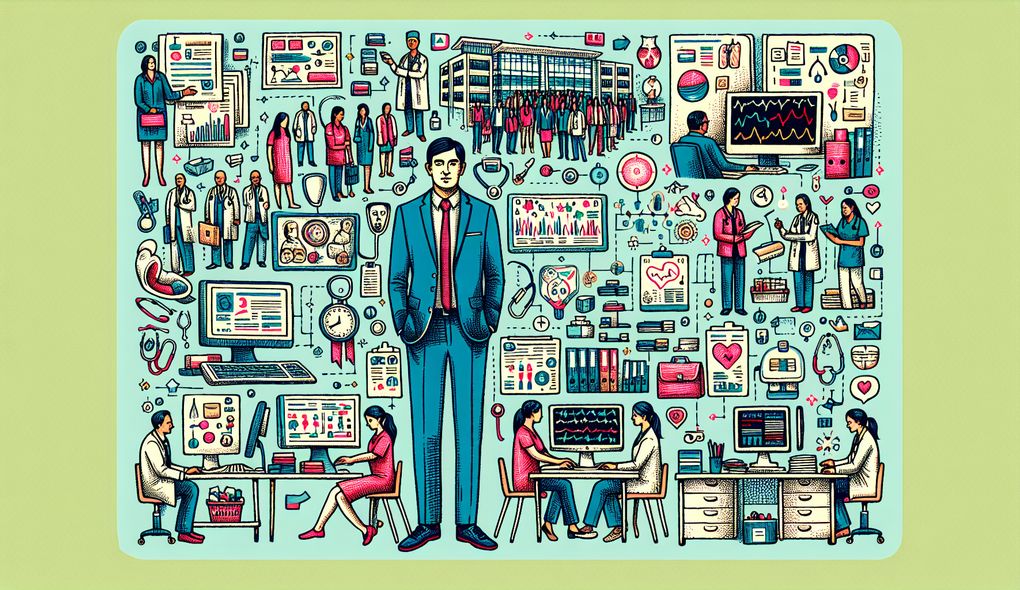Tell us about a time when you had to make a difficult decision that impacted patient care.
SENIOR LEVEL

Sample answer to the question:
During my time as a nurse in the intensive care unit (ICU), I had to make a difficult decision that impacted patient care. We had a patient who was experiencing respiratory distress and needed immediate intubation. However, there was a shortage of ventilators in the ICU, and we had to prioritize their allocation. After assessing the severity of each patient's condition, I had to make the tough call to prioritize another patient who had a more critical condition and needed the ventilator more urgently. It was a challenging decision to make, as both patients needed immediate medical intervention. I communicated the situation to the patient's family, explaining the circumstances and the decision made. I ensured that the patient received alternative respiratory support until a ventilator became available. While it was a difficult decision to make, it was necessary to provide the best possible care given the limited resources.
Here is a more solid answer:
As a Clinical Manager, I faced a challenging decision that had a significant impact on patient care. One of our primary care physicians retired unexpectedly, leaving a gap in our healthcare team. This created a situation where we had to redistribute patients across other providers. I had to carefully analyze the patient population, taking into consideration their medical conditions, accessibility to healthcare, and the workload of the remaining physicians. After thorough evaluation, I designed a patient redistribution plan that ensured all patients received continued care without compromising their wellbeing. I communicated the changes to each patient individually, addressing any concerns or questions they had. By prioritizing patient needs, maintaining open communication, and collaborating with the remaining physicians, we managed to seamlessly transition the patients and prevent any disruptions in their care. This difficult decision required critical thinking, problem-solving abilities, effective communication, and attention to detail.
Why is this a more solid answer?
The solid answer provides a detailed scenario where the candidate had to make a difficult decision that impacted patient care. It showcases their problem-solving abilities, attention to detail, ability to prioritize tasks, and communication skills. The candidate demonstrates critical thinking by considering various factors, such as patient conditions and workload, in making the decision. Additionally, their effective communication and collaboration with the healthcare team contributed to successful patient redistribution. However, the answer could still benefit from more specific examples and elaboration on the outcomes and patient outcomes.
An example of a exceptional answer:
As a Clinical Manager, I encountered a difficult decision that had a profound impact on patient care. One of our radiology technicians reported a potential misdiagnosis in a recent mammogram. The patient in question had been scheduled for a follow-up appointment to discuss the results, but the misdiagnosis raised concerns about the accuracy of the initial report. I immediately gathered a multidisciplinary team consisting of radiologists, oncologists, and pathologists to review the case. We meticulously analyzed the mammogram images, consulted previous medical records, and conducted additional diagnostic tests to confirm the correct diagnosis. After extensive discussions, it became evident that the initial report was indeed incorrect, and the patient required urgent intervention for early-stage breast cancer. We swiftly coordinated with the patient's primary physician to schedule a surgical consultation and expedite the necessary treatment. The patient received the appropriate care and achieved a positive outcome due to our proactive response. This difficult decision required exceptional critical thinking, problem-solving abilities, attention to detail, and effective collaboration with the healthcare team.
Why is this an exceptional answer?
The exceptional answer presents a highly impactful and complex scenario involving a potential misdiagnosis in mammography. The candidate showcases exceptional critical thinking and problem-solving abilities by assembling a multidisciplinary team, conducting thorough analysis and diagnostic tests, and ensuring the correct diagnosis. The proactive response and collaboration with the healthcare team resulted in the patient receiving timely and appropriate care, leading to a positive outcome. The answer provides a comprehensive demonstration of the candidate's skills in problem-solving, critical thinking, attention to detail, and effective collaboration. However, it could further enhance the answer by elaborating on the specific steps taken during the diagnostic process and the long-term impact on patient care.
How to prepare for this question:
- Reflect on past experiences where difficult decisions impacting patient care were made and identify the skills utilized during those situations.
- Consider scenarios where resource allocation, patient redistribution, or diagnostic challenges were involved.
- Practice explaining complex scenarios concisely, focusing on the decision-making process and the outcomes.
- Highlight the importance of effective communication, collaboration, and attention to detail in patient care.
What are interviewers evaluating with this question?
- Problem-solving abilities
- Attention to detail
- Ability to prioritize tasks
- Communication skills

